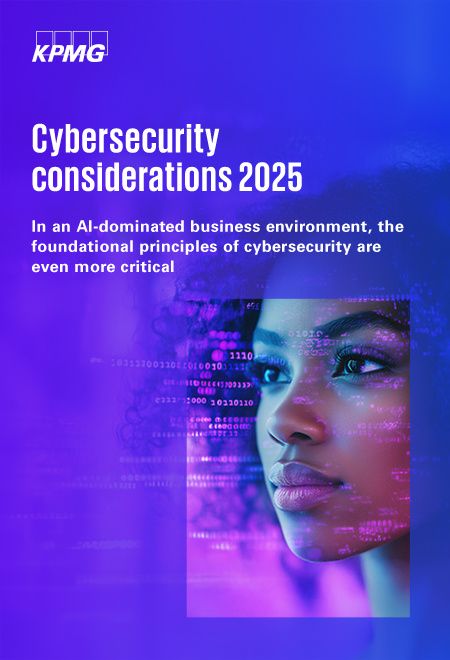The digital transformation in the public sector is progressing and vulnerability is increasing at the same time. Between geopolitical instability, outdated IT landscapes and a growing shortage of skilled labour, security managers must react faster, think ahead and cooperate across sectors.
Particularly challenged: Chief Information Security Officers (CISOs), who are responsible for digital security in public authorities. Their task is becoming more complex - they have to fulfil regulatory requirements, manage operational risks and at the same time ensure trust in new technologies such as AI.

Cyber Considerations 2025
We provide practical recommendations on how your company can respond to cyber risks
Download nowWilhelm Dolle
Partner, Consulting, Head of Cyber Security
KPMG AG Wirtschaftsprüfungsgesellschaft
Key challenges for CISOs in the public sector
1. resilience instead of just prevention
Critical infrastructures such as energy, transport or administrative systems are targets for cyberattacks. CISOs should move away from reactive protection and towards structural resilience through processes, tests and cross-functional collaboration.
2. integrate AI sensibly and securely
With the increased use of artificial intelligence in public administration, the responsibility to create trust is growing - through clear governance, transparent algorithms and reliable data quality.
3. strategically secure digital identity
Digital identity solutions are essential for access to public services. The security of these systems is the basis for trust - and a prerequisite for digital sovereignty.
Digital sovereignty as a basic requirement
For public authorities, digital sovereignty means independence when it comes to critical technologies, clear control over data flows and actively shaping the digitalisation of public services. Those who rely on strong partnerships, interoperable identity solutions and compliance-proof architectures strengthen the trust of citizens - and their own ability to act in times of crisis.
Our recommendations
CISOs in the public sector should
- Regularly evaluate security strategies and adapt them to new threat situations,
- dovetail data protection, AI governance and IT resilience more closely and
- promote public-private partnerships to develop secure digital identities.
Read the full study with the eight key cybersecurity topics for 2025 now.



